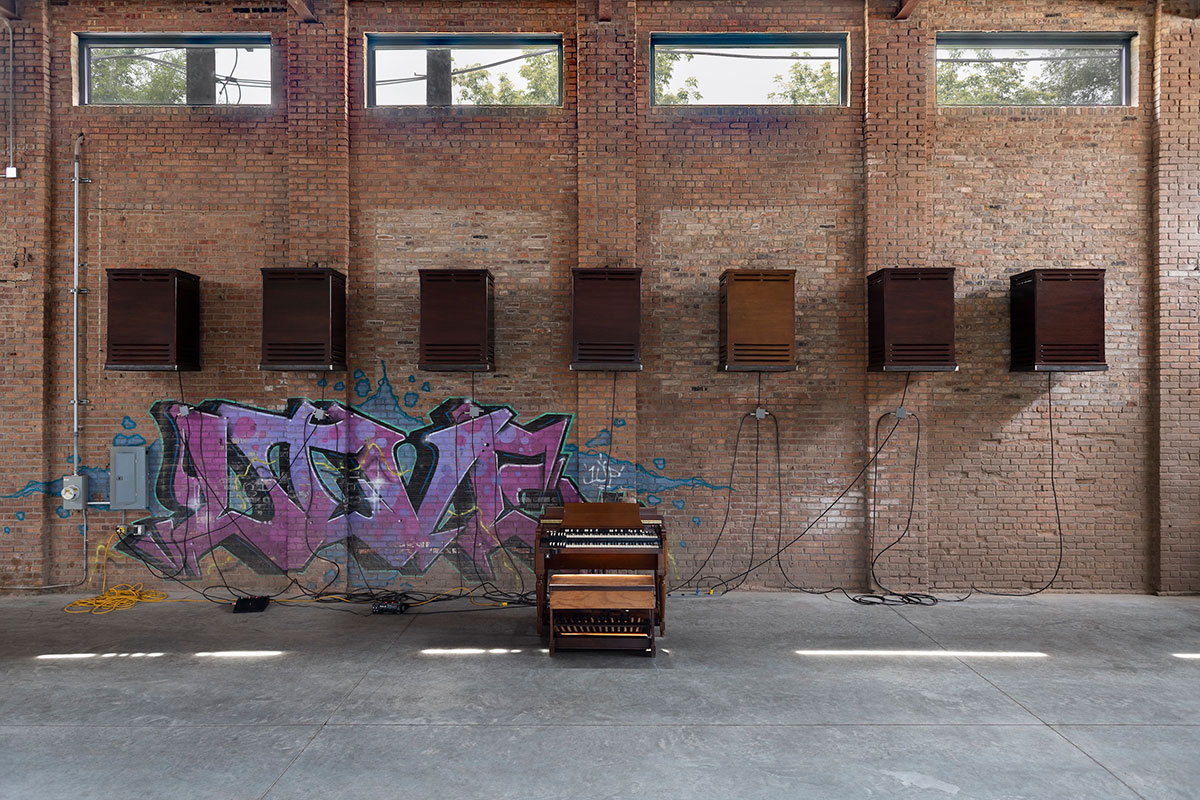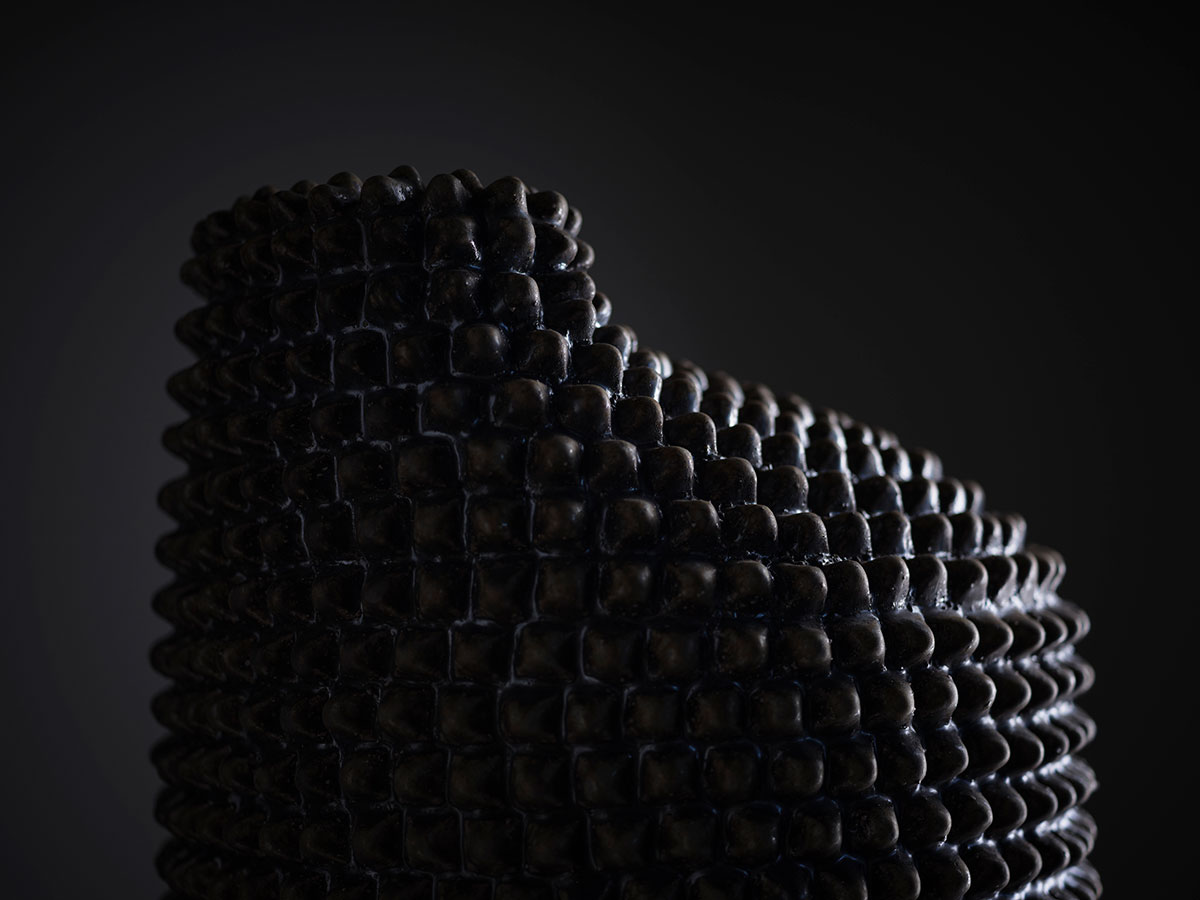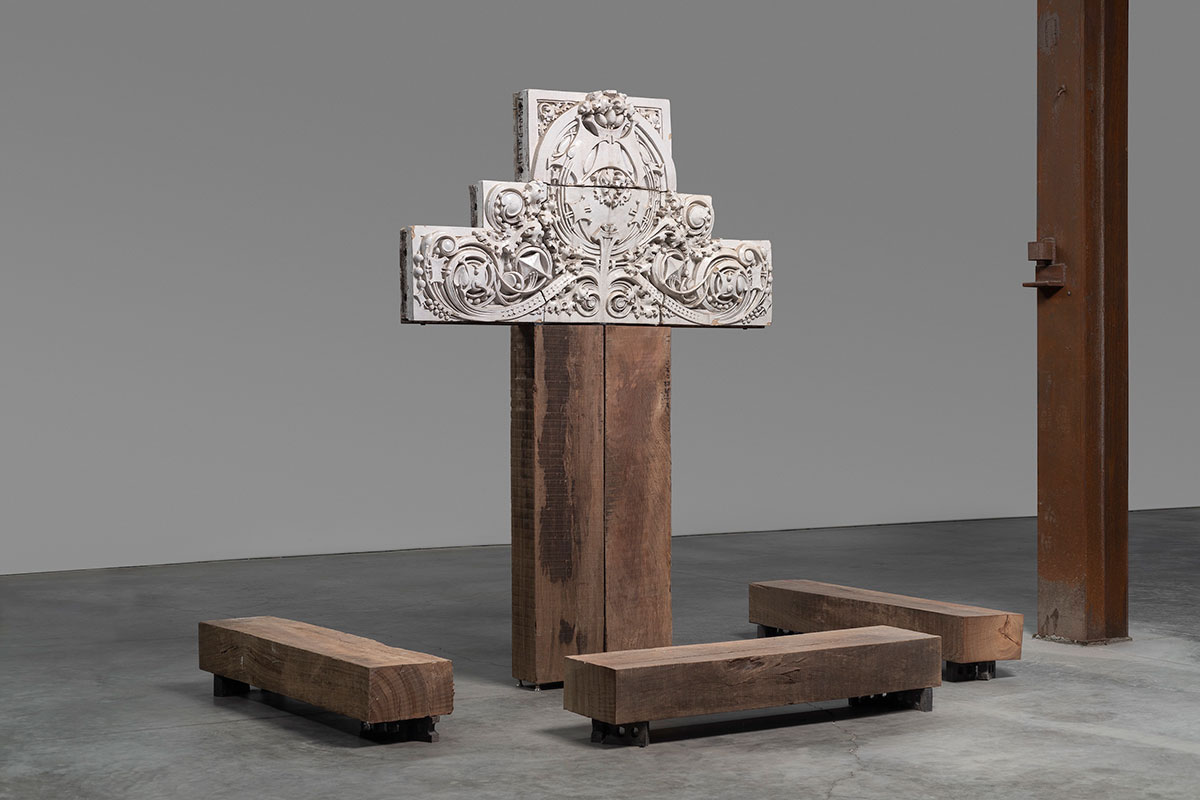PRESENTATION: Theaster Gates-Young Lords and Their Traces
 Theaster Gates’s oeuvre is among the most conceptually and materially rich in contemporary art, anchored equally in the canons of art history, the racial ideology of the Black diaspora, and the artist’s own personal history. Through an art practice predicated on cultural reclamation and social empowerment, Gates exchanges and recharges objects and ideas, proposing the artwork as a communicating vessel or sacred reliquary of recollected histories, critical vitality, and shared experience.
Theaster Gates’s oeuvre is among the most conceptually and materially rich in contemporary art, anchored equally in the canons of art history, the racial ideology of the Black diaspora, and the artist’s own personal history. Through an art practice predicated on cultural reclamation and social empowerment, Gates exchanges and recharges objects and ideas, proposing the artwork as a communicating vessel or sacred reliquary of recollected histories, critical vitality, and shared experience.
By Efi Michalarou
Photo: New Museum Archive
Theaster Gates was born and raised in Chicago, where he currently lives and works. Drawing from his earlier vocational pursuits in public service, urban planning, and religious studies, Gates works to redeem spaces that have been left behind, centering his practice on the possibility of the “life within things”. Known for his recirculation of art-world capital, Gates’s recent artworks possess an intersectional relationship between space theory and land development, sculpture and performance, smartly upturning art values, land values, and human values. In all aspects of his work, he contends with the notion of Black space as a formal exercise—one defined by collective desire, artistic agency, and the tactics of a pragmatist. “Young Lords and Their Traces”, the first American museum survey exhibition devoted to Theaster Gates, is encompassing the full range of the artist’s practice across a variety of media creating communal spaces for preservation, remembrance, and exchange. Taking place across three floors of New Museum, this exhibition encapsulates the full range of Theaster Gates’s artistic activities, featuring artworks produced over the past twenty years and site-specific environments created especially for this presentation. Gates has titled the exhibition “Young Lords and Their Traces” in honor of the radical thinkers who have shaped his home city of Chicago and America as a whole. For Gates, collective forms of knowledge are built across objects, images, sounds, movements, and most importantly, through the relationships between people. This survey exhibition comprises a choreography of works including paintings, sculptures, videos, performances, and archival collections that work together to memorialize both heroic figures and more humble, everyday icons. Gates’s elevation of these quieter sources of knowledge, and his assertion that collecting and archiving are forms not only of preservation but also of devotion and remembrance, have made his work reverberate both locally and internationally. Theaster Gates emerged in the early 2000s with a sculptural practice characterized by its use of salvaged materials and deeply researched interdisciplinary histories—a mode of working that he maintains today. The elegiac formalism of Gates’s large-scale tar paintings, experimental clay vessels, and immersive architectural installations can be linked to both personal and collective narratives of labor and spirituality. Alongside his early sculptural production, Gates has undertaken an ambitious project to revitalize his neighborhood on the South Side of Chicago by transforming unused buildings into experimental spaces for the exploration of Black culture. In recent years, Gates has linked these activities by rescuing a variety of historical collections of images and objects in Chicago and creating architectural spaces and sculptural structures for their preservation and dissemination to wider audiences. Through the exhibition Gates reimagines the function of a museum as a space for personal histories and spiritual convocations. As part of the expansive exhibition, one entire floor of the New Museum is transformed into a kind of personal museum, gathering artworks, artifacts, and mementos connected to influential figures in Gates’s life and career who have passed away in recent years: curator Okwui Enwezor, writer bell hooks, and Gates’s own father, among others. While tinged with a sense of loss, Gates’s recent work creates a network of intellectual and aesthetic affinities across generations. The result is less a map of personal obsessions than an assembly of voices in which the viewer is invited to participate. Combining an intimate, poetic sensibility and a sense of civic commitment, Gates’s work reimagines art as a form of social sculpture that can open up new modes of collectivity and knowledge production even in the most surprising contemporary settings.
Photo: Theaster Gates, A Song for Frankie, 2017–21, 5,000 records, DJ booth, and record player, overall dimensions variable, © Theaster Gates. Photo: Rob McKeever, Courtesy Theaster Gates
Info: Curators: Massimiliano Gioni and Gary Carrion-Murayari, Assistant Curator: Madeline Weisburg, New Museum, 235 Bowery, New York, NY, USA, Duration: 10/11/2022-5/2/2023, Days & Hours: Tue-Wed & Fri-Sun 11:00-18:00, Thu 11:00-21:00, www.newmuseum.org/
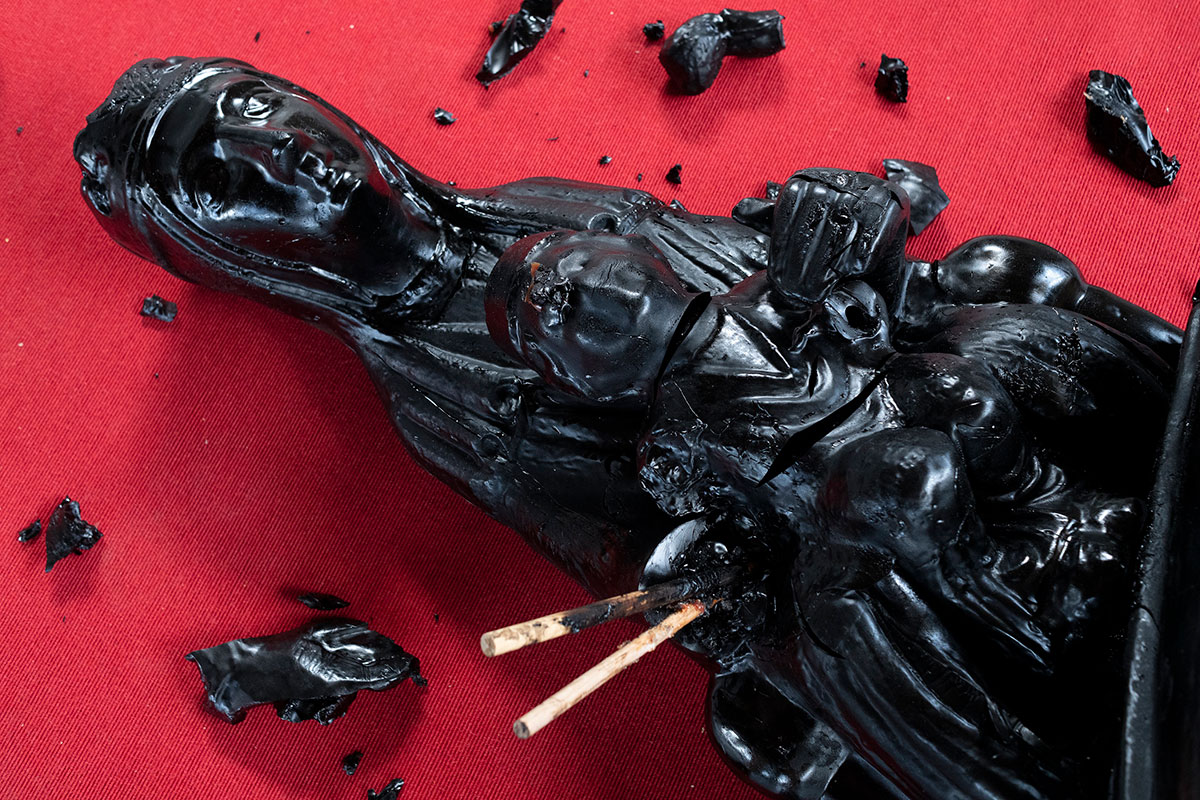
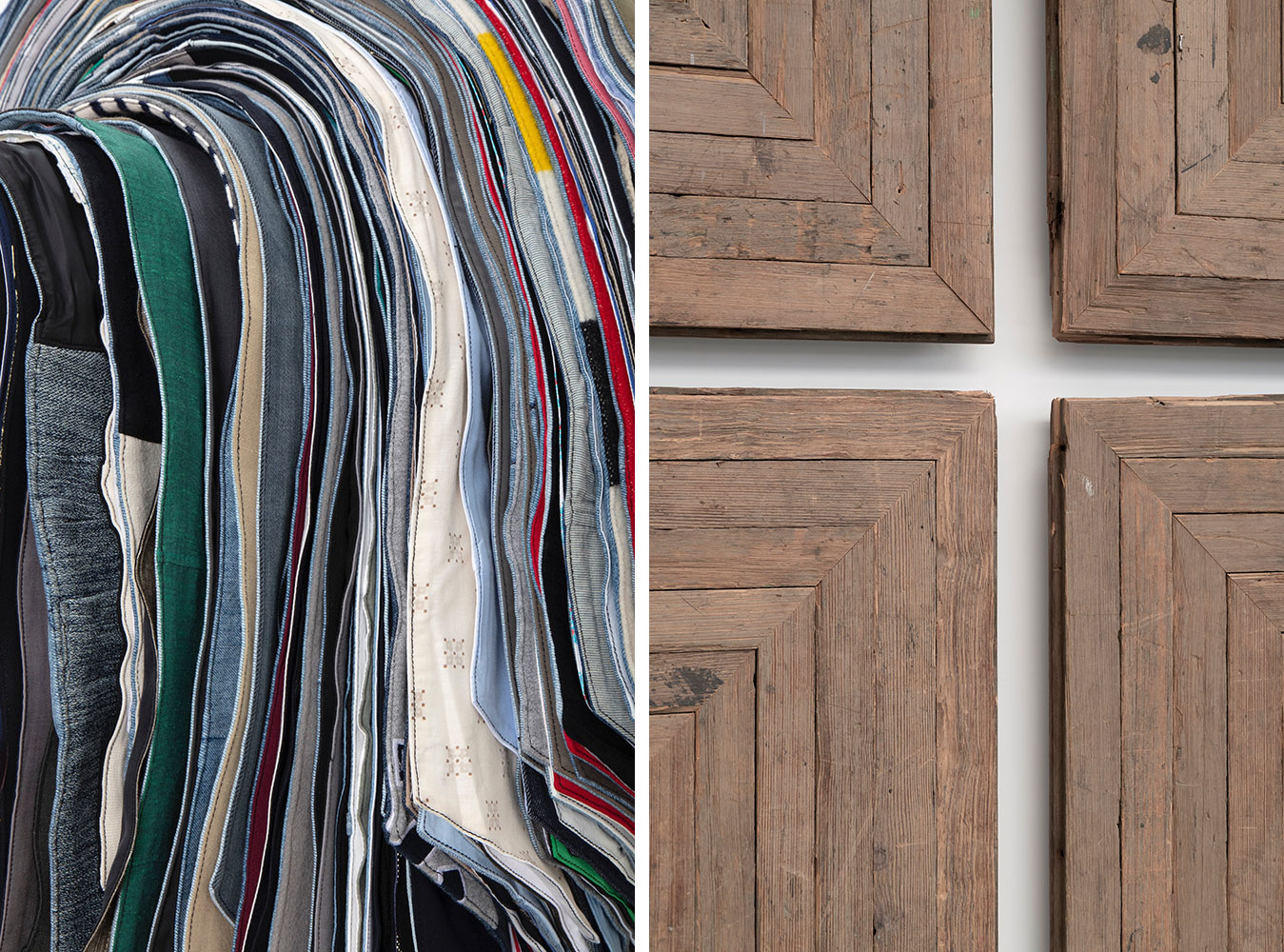
Right: Theaster Gates, Cross in Sections, 2022 (detail). Old growth pine, 57 × 57 × 2 3/4 in. (144.8 × 144.8 × 6.9 cm). © Theaster Gates. Courtesy Theaster Gates. Photo: Jim Prinz Photography
